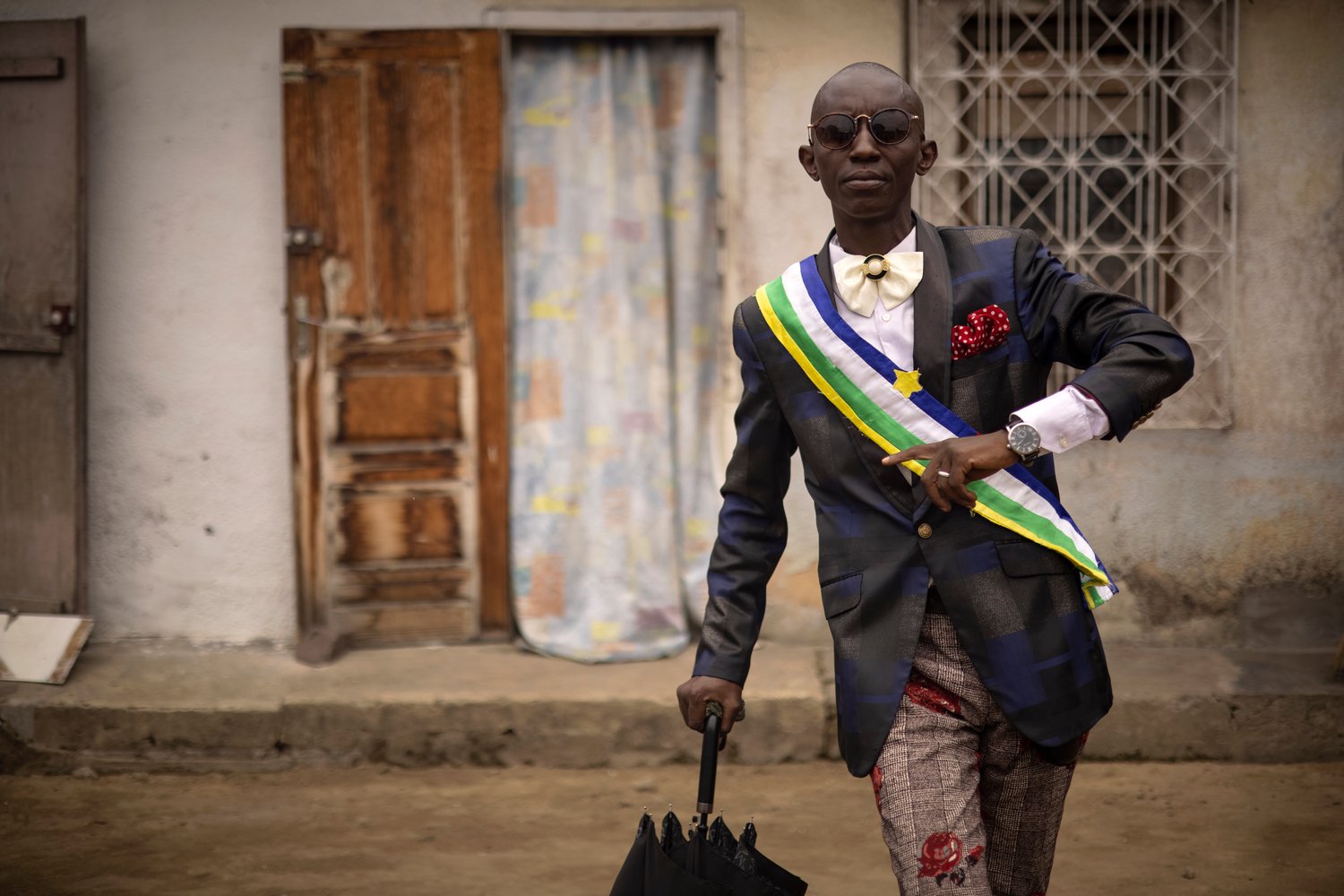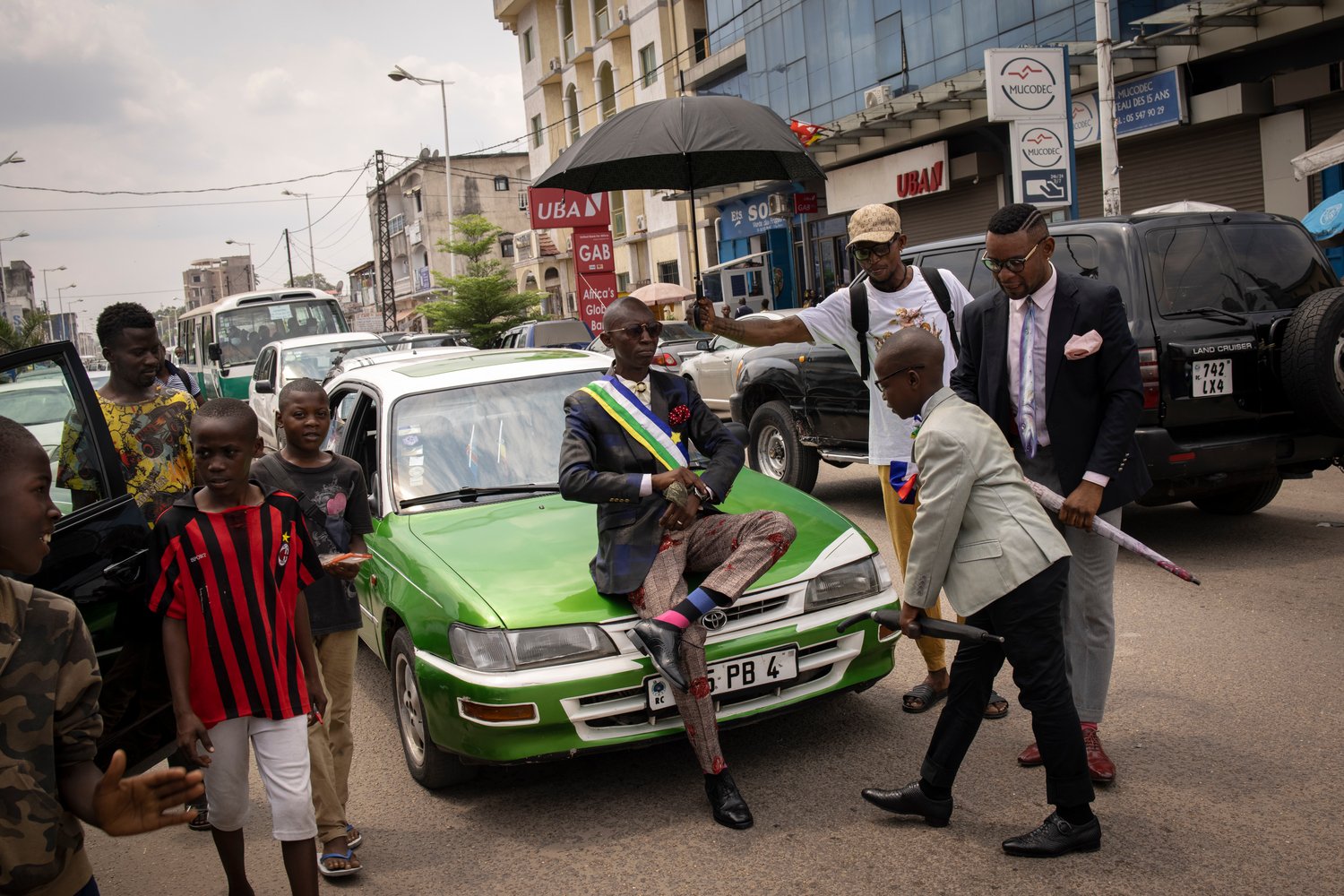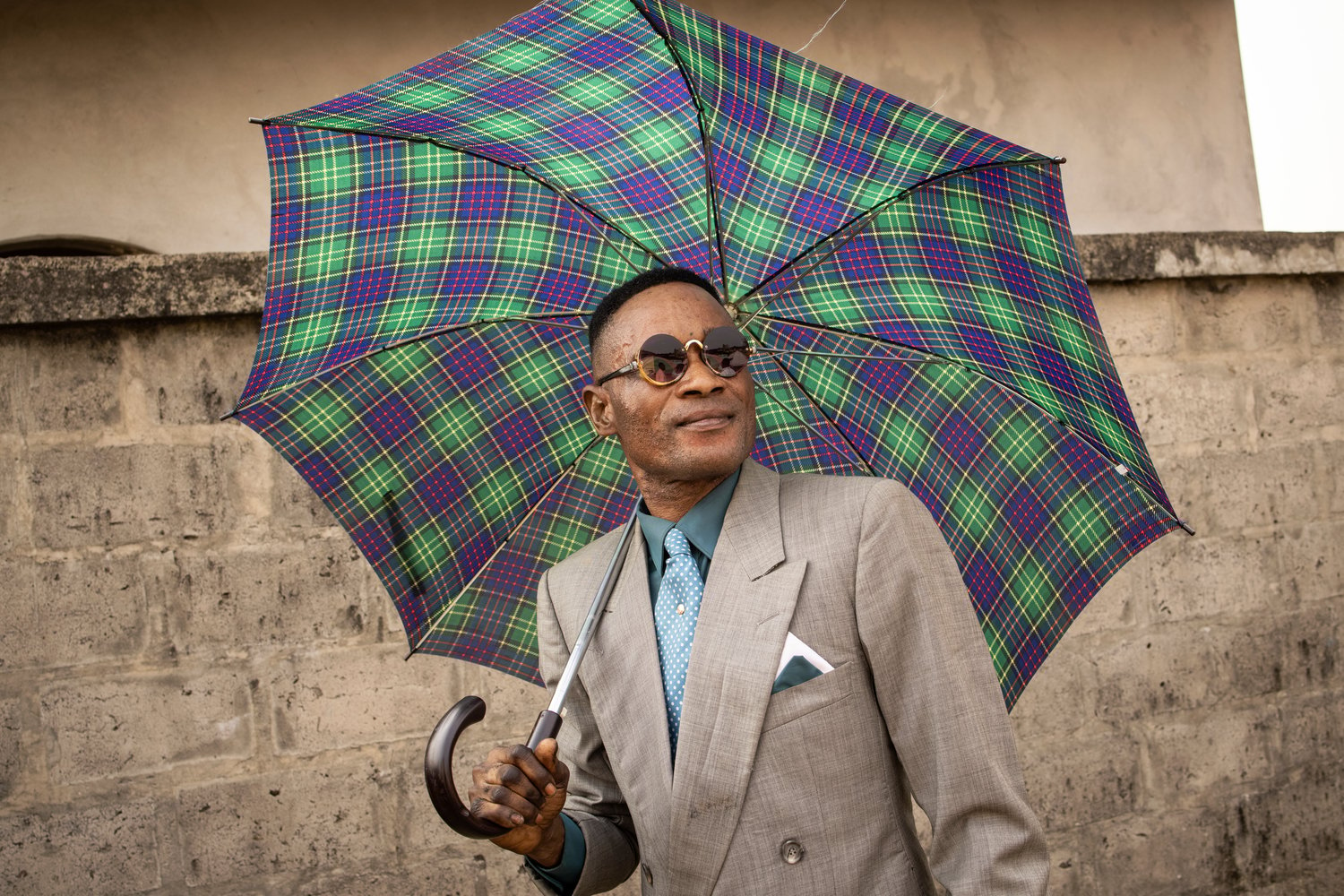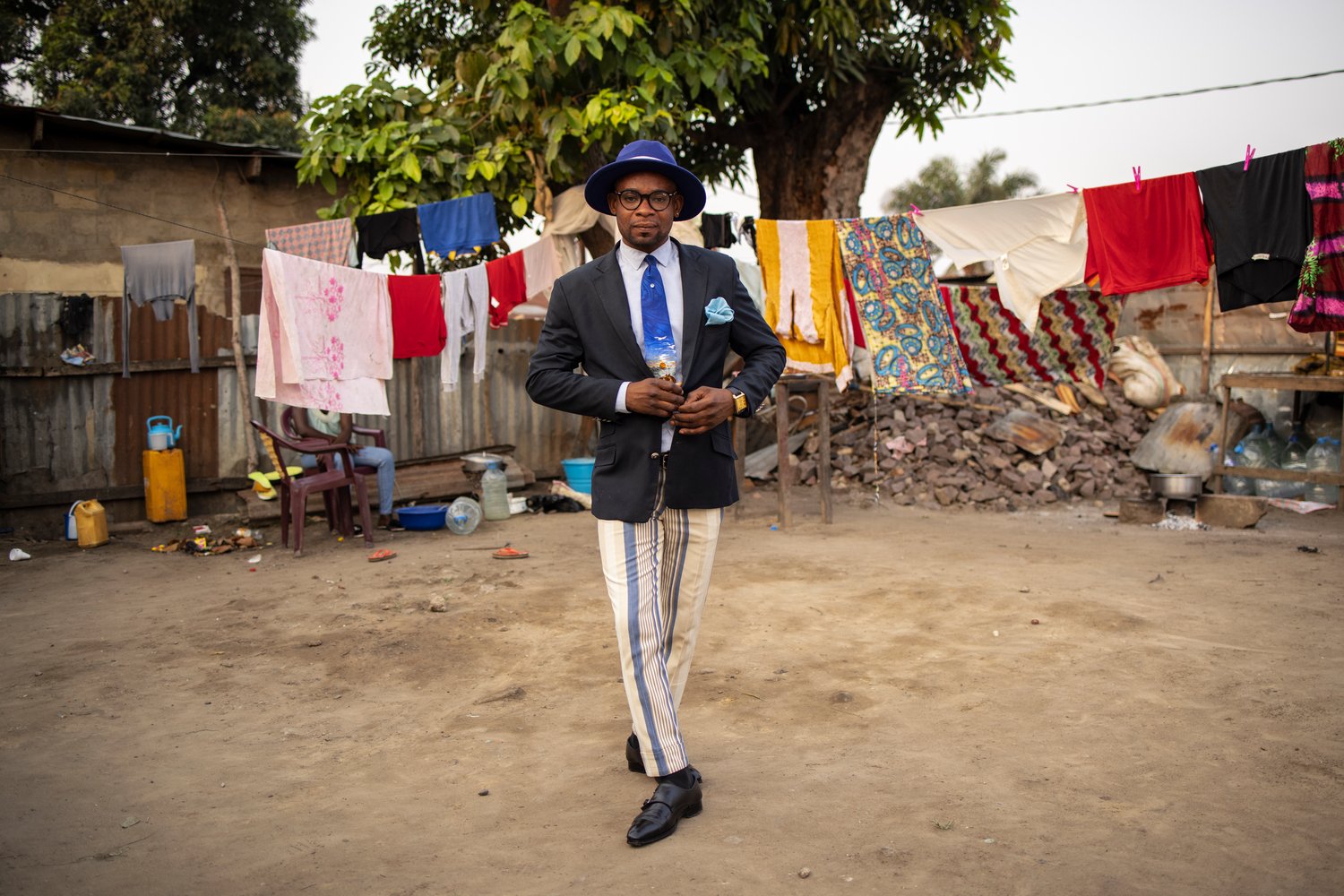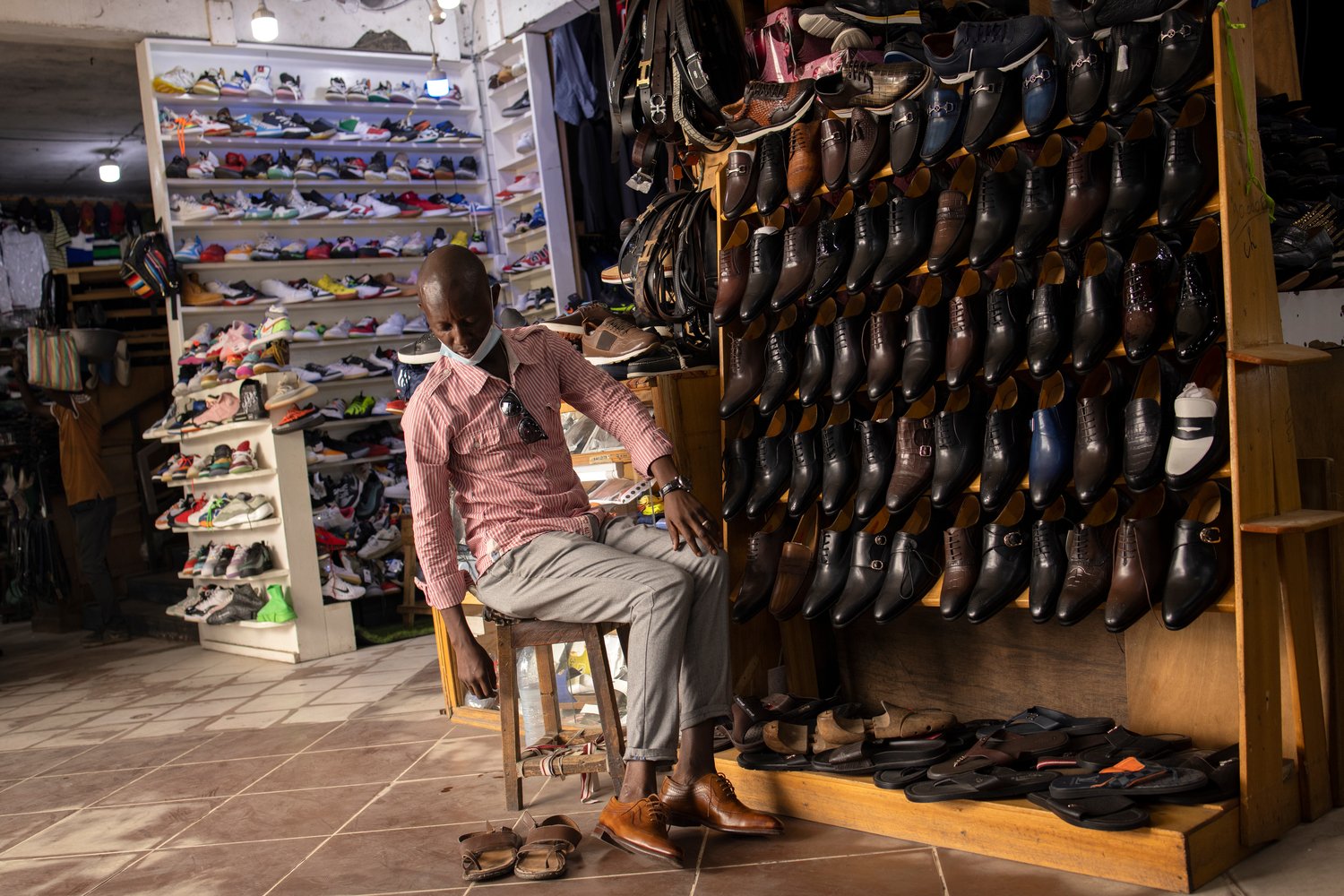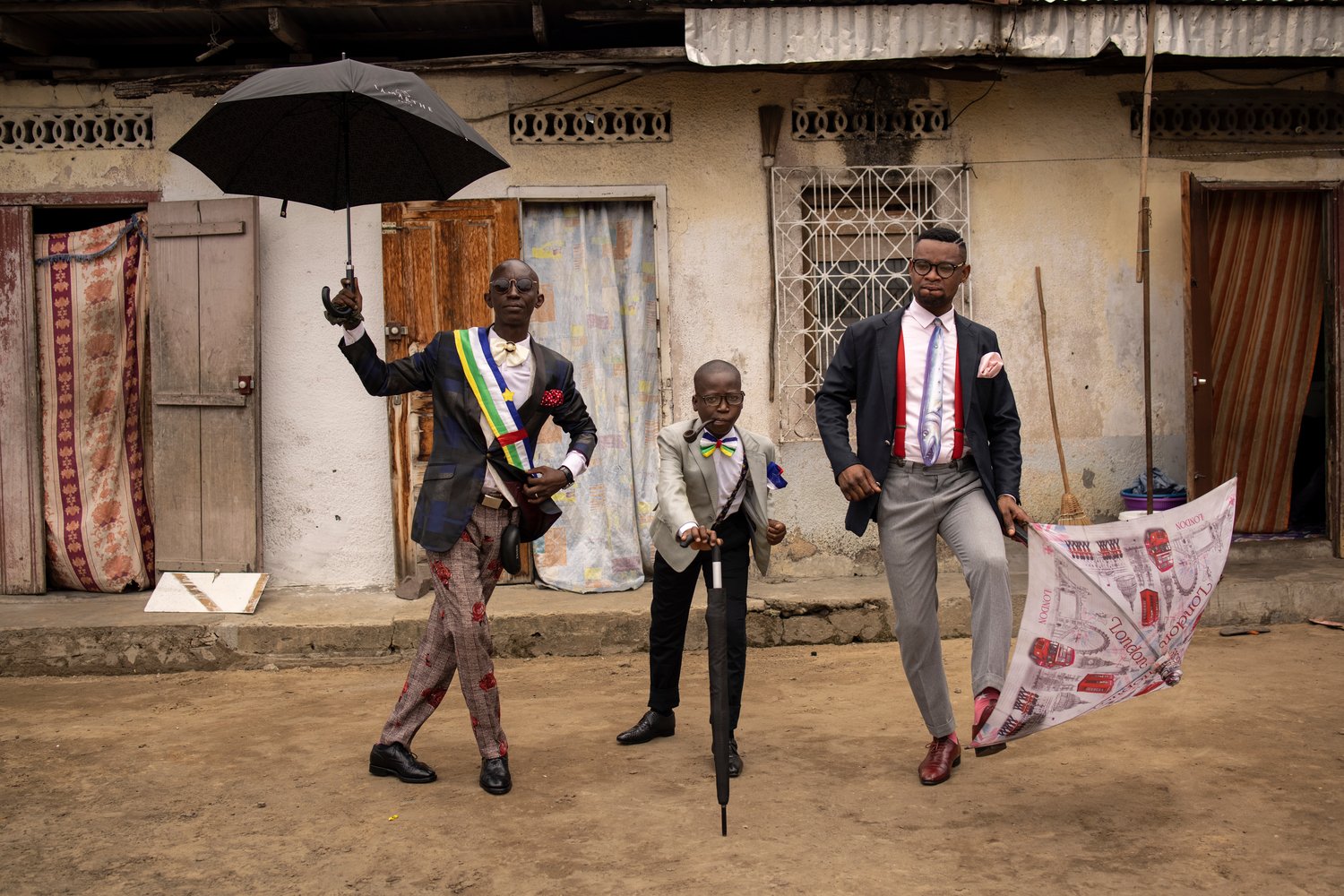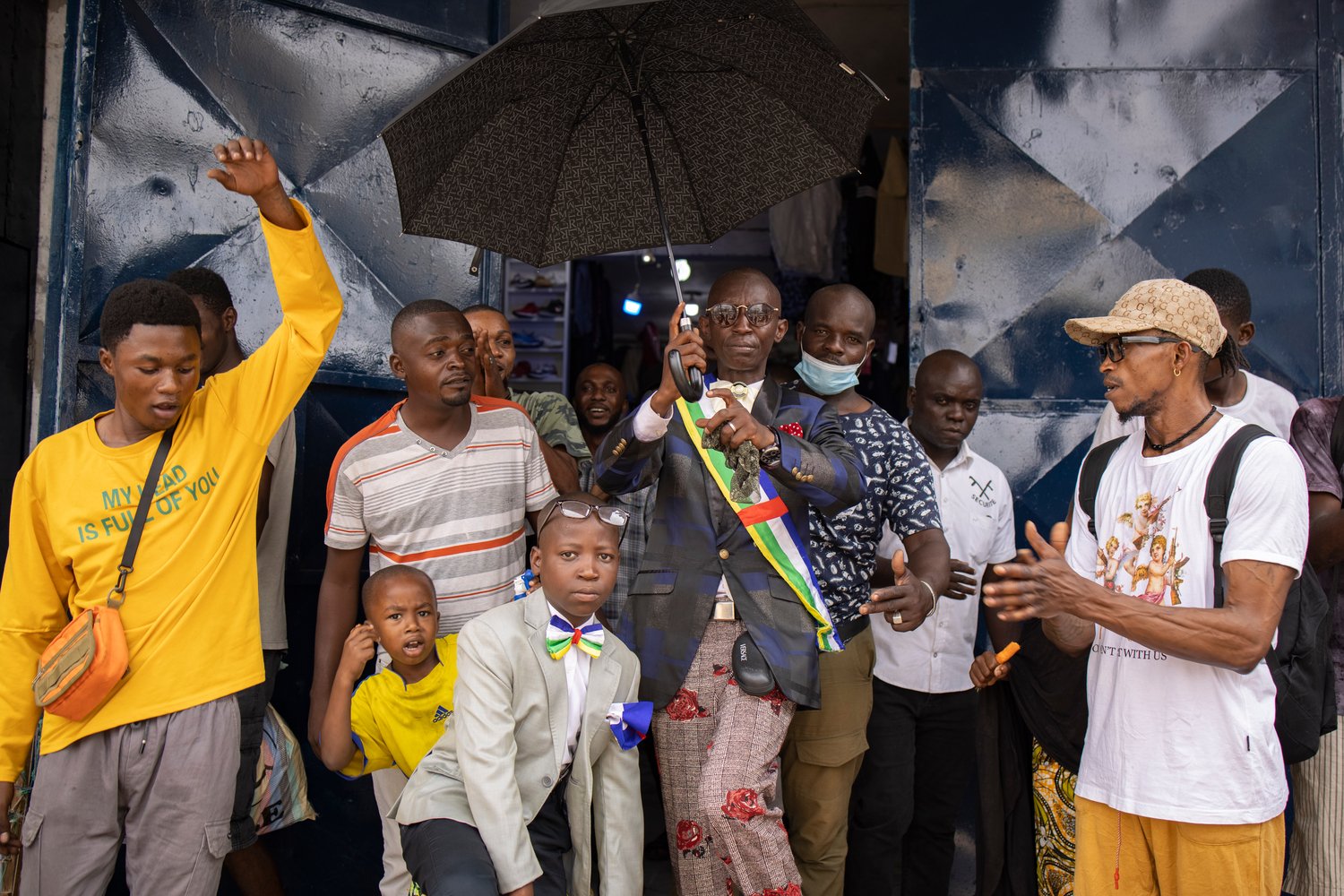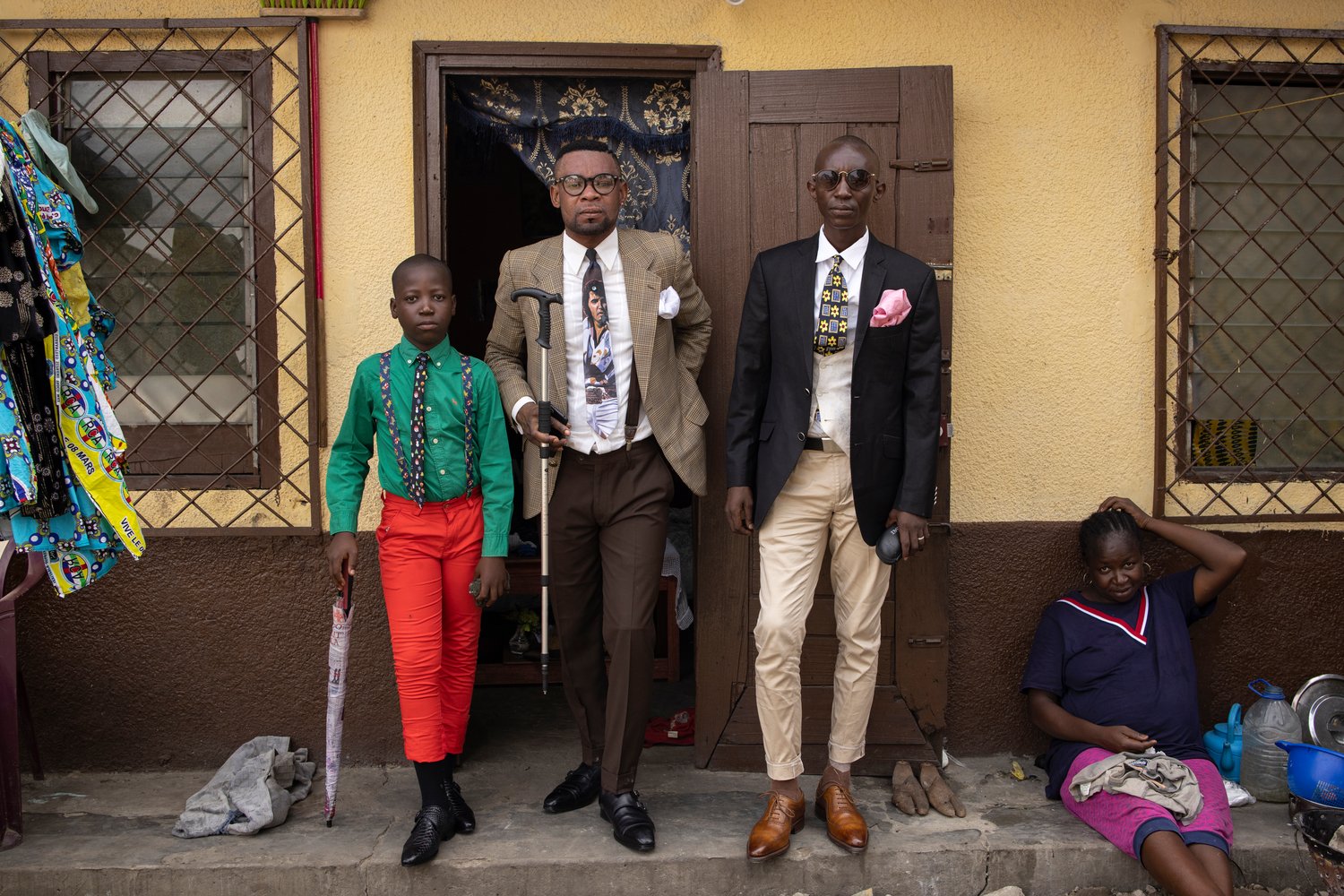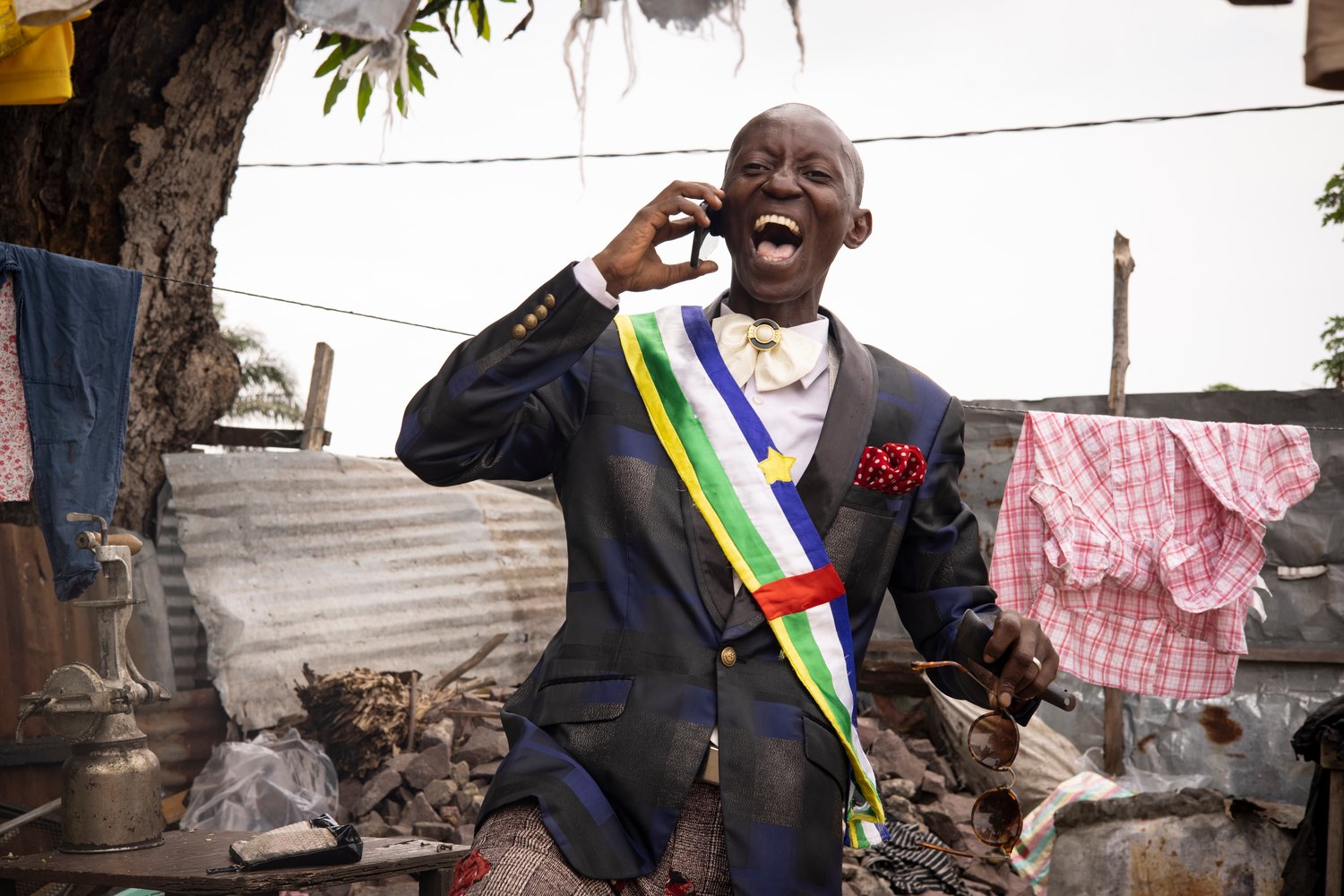Exile with style
A refugee finds safety in Brazzaville, and joy among its colourful ‘sapeurs’Photos and text by Hélène Caux
20 June 2022
Francis Mbéré strikes a pose as a sapeur in his neighbourhood of Brazzaville, Republic of the Congo.
Exile with style
A refugee finds safety in Brazzaville, and joy among its colourful ‘sapeurs’Photos and text by Hélène Caux
20 June 2022
Francis Mbéré strikes a pose as a sapeur in his neighbourhood of Brazzaville, Republic of the Congo.
Brazzaville, Republic of the Congo
Francis Mbéré never thought he would enjoy life again after what he endured in his home country, the Central African Republic. But nine years after fleeing brutal attacks, he proudly parades the streets of his adopted hometown, Brazzaville, capital of the Republic of the Congo, with his friends and fellow “sapeurs”.
“The first time I decided to go out in the streets wearing sapeur clothes … It was just magic.”
Stopping traffic and briefly perching on cars is popular among sapeurs. Many drivers and pedestrians enjoy it too, offering applause and forgetting for a moment their daily concerns.
Stopping traffic and briefly perching on cars is popular among sapeurs. Many drivers and pedestrians enjoy it too, offering applause and forgetting for a moment their daily concerns.
The sapeurs are followers of a fashion and cultural movement known as La Sape – the Society of Ambiance Makers and Elegant People (Société des Ambianceurs et des Personnes Élégantes in French) – that gained popularity in the 1960s in Brazzaville and Kinshasa, capital of the Democratic Republic of the Congo. The movement was inspired by 19th century French dandyism.
Joined by friends, Francis and his son Séverin strike a pose on Matsoua Bacongo Avenue, where Brazzaville sapeurs regularly parade.
Joined by friends, Francis and his son Séverin strike a pose on Matsoua Bacongo Avenue, where Brazzaville sapeurs regularly parade.
Wearing suave suits from luxury brands, accessorized with hats, ties and colourful waistcoats and socks, sapeurs want to be seen and admired, and thus practice the art of dressing well (“bien se saper” in French). But when they take to the streets in their finery, their goal is also to bring joy and entertainment to their communities. Although most sapeurs are male, female “sapeuses” are increasingly common.
Gabriel-Boris Diakabana, 51, is President of the SAPE in Congo-Brazzaville.
Gabriel-Boris Diakabana, 51, is President of the SAPE in Congo-Brazzaville.
Francis, 40, says he came to “sapping” in 2016, a few years after arriving in Brazzaville, because he enjoys dressing up and taking pride in his appearance. “The first time I decided to go out in the streets wearing sapeur clothes … I had so many emotions … I did not know people would support me, would applaud when I paraded. It was just magic.”
Francis (right) strikes a pose with his friend Crèche Nkodia, 29, whose sapeur nickname is Parabolic.
Francis (right) strikes a pose with his friend Crèche Nkodia, 29, whose sapeur nickname is Parabolic.
Sapeurs are expected to behave beyond reproach, following a code of conduct that prizes peace, self-respect, good manners and… fun! They are everyday men and women, such as masons, taxi drivers, shoemakers and small traders, ready to invest the little money they earn to feed their passion for buying and wearing fine clothes.
Crèche makes his living as a builder, and before that sold salted fish at food markets.
Crèche makes his living as a builder, and before that sold salted fish at food markets.
Francis fled the Central African Republic with his wife and children in 2013, after their neighbourhood of Bangui, the capital, was attacked by an armed group. At the time, intercommunal and religious conflicts were tearing the country apart, exposing civilians to widespread violence.
The insurgents shot and macheted four members of Francis’ family, including his two-year-old niece, and burned down his parents’ house, killing his mother, father and grandmother who were inside. Francis and his one-year-old son, Séverin, were wounded in the head by shrapnel, but both survived and managed to escape with Francis’s wife, Natasha, and their other children.
Francis tries on shoes for his next sapeur shows in the streets of Brazzaville.
Francis tries on shoes for his next sapeur shows in the streets of Brazzaville.
Today, Francis is still living with the trauma of the violence he and his family experienced, but he finds some peace and joy transforming himself into a sapeur at the weekends and for special occasions. “It helps me to accept the horrible experience we had in the Central African Republic,” he says.
Francis strikes a pose outside his home, joined by his son Séverin and his friend Crèche, aka Parabola.
Francis strikes a pose outside his home, joined by his son Séverin and his friend Crèche, aka Parabola.
The hobby has also helped Francis forge friendships with Congolese sapeurs like Crèche Nkodia (nicknamed Parabolique), a builder by trade who has been parading in Brazzaville since 2009.
“I’ve never had a friend like Francis,” says Crèche. “When he gets dressed and comes out of his house, you can feel the professionalism in him … He is admired by everyone.”
Francis and Séverin exit a clothing market in Brazzaville, surrounded by fans.
Francis and Séverin exit a clothing market in Brazzaville, surrounded by fans.
Francis has also introduced his son, Séverin, now 11, to sapping, while his wife, Natasha, also occasionally transforms herself into a sapeuse.
“Walking together with my father wearing sapeur clothes makes me very proud,” says Séverin. “The first time I participated in a sapeur competition for children, I won the golden trophy! People congratulated me and I received several gifts, such as a jacket and a pair of shoes.”
Séverin, Crèche and Francis set out to parade in the streets of Brazzaville, while Natasha stays home to clean the house.
Séverin, Crèche and Francis set out to parade in the streets of Brazzaville, while Natasha stays home to clean the house.
The whole family have had to make financial sacrifices to support their hobby. Francis earns only a small income repairing mobile phones from a street stall while Natasha sells donuts, mangoes, and roasted peanuts.
“Often we have little money left to take care of the whole family,” she says. “But it makes me happy to see that Francis likes being a sapeur. And what gives me even more pleasure is to see that our son Séverin loves it so much as well.”
Francis can’t help showing his joy when a friend promises to lend one of his suits for an upcoming sapeur show. Sharing clothes is a common way for sapeurs to maximize the use of expensive suits.
Francis can’t help showing his joy when a friend promises to lend one of his suits for an upcoming sapeur show. Sharing clothes is a common way for sapeurs to maximize the use of expensive suits.

